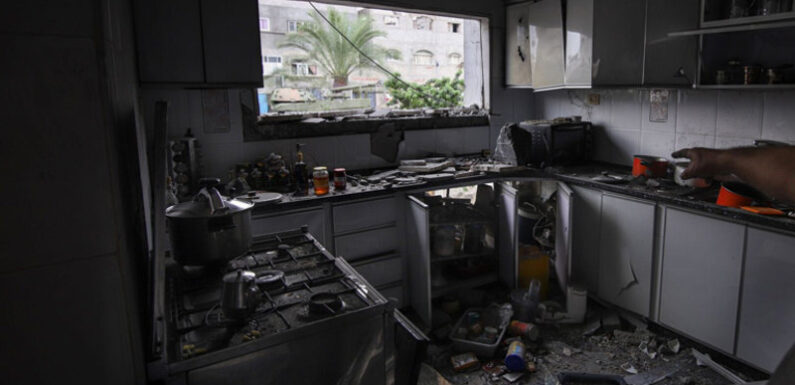
Save articles for later
Add articles to your saved list and come back to them any time.
Washington: Among images of the bombed out homes and ravaged streets of Gaza, some stood out for the utter horror: bloodied, abandoned infants.
Viewed millions of times online since the war began, these images are deepfakes created using artificial intelligence. If you look closely you can see clues: fingers that curl oddly, or eyes that shimmer with an unnatural light – all telltale signs of digital deception.
The outrage the images were created to provoke, however, is all too real.
Pictures from the Israel-Hamas war have vividly and painfully illustrated AI’s potential as a propaganda tool, used to create lifelike images of carnage. Since the war began last month, digitally altered ones spread on social media have been used to make false claims about responsibility for casualties or to deceive people about atrocities that never happened.
While most of the false claims circulating online about the war didn’t require AI to create and came from more conventional sources, technological advances are coming with increasing frequency and little oversight. That’s made the potential of AI to become another form of weapon starkly apparent, and offered a glimpse of what’s to come during future conflicts, elections and other big events.
We’ve added four faked details in the image below. Can you tell the difference?
Don’t swipe until you are ready to reveal the original image. Answers below.
“It’s going to get worse – a lot worse – before it gets better,” said Jean-Claude Goldenstein, CEO of CREOpoint, a tech company based in San Francisco and Paris that uses AI to assess the validity of online claims. The company has created a database of the most viral deepfakes to emerge from Gaza. “Pictures, video and audio: with generative AI it’s going to be an escalation you haven’t seen.”
In some cases, photos from other conflicts or disasters have been repurposed and passed off as new. In others, generative AI programs have been used to create images from scratch, such as one of a baby crying amidst bombing wreckage that went viral in the conflict’s earliest days.
Other examples of AI-generated images include videos showing supposed Israeli missile strikes, or tanks rolling through ruined neighbourhoods, or families combing through rubble for survivors.
In many cases, the fakes seem designed to evoke a strong emotional reaction by including the bodies of babies, children or families. In the bloody first days of the war, supporters of both Israel and Hamas alleged the other side had victimised children and babies; deepfake images of wailing infants offered photographic “evidence” that was quickly held up as proof.
The propagandists who create such images are skilled at targeting people’s deepest impulses and anxieties, said Imran Ahmed, CEO of the Centre for Countering Digital Hate, a non-profit that has tracked disinformation from the war. Whether it’s a deepfake baby, or an actual image of an infant from another conflict, the emotional impact on the viewer is the same.
The more abhorrent the image, the more likely a user is to remember it and to share it, unwittingly spreading the disinformation further.
“People are being told right now: look at this picture of a baby,” Ahmed said. “The disinformation is designed to make you engage with it.”
‘Detection and trying to pull this stuff down is no longer the solution. We need to have a much bigger solution.’
Around the world a number of start-up tech firms are working on new programs that can sniff out deepfakes, affix watermarks to images to prove their origin, or scan text to verify any specious claims that may have been inserted by AI.
“The next wave of AI will be: how can we verify the content that is out there? How can you detect misinformation? How can you analyse text to determine if it is trustworthy?” said Maria Amelie, co-founder of Factiverse, a Norwegian company that has created an AI program that can scan content for inaccuracies or bias introduced by other AI programs.
Such programs would be of immediate interest to educators, journalists, financial analysts and others interested in rooting out falsehoods, plagiarism or fraud. Similar programs are being designed to sniff out doctored photos or video.
While this technology shows promise, those using AI to lie are often a step ahead, according to David Doermann, a computer scientist who led an effort at the US Defence Advanced Research Projects Agency to respond to the national security threats posed by AI-manipulated images.
“Every time we release a tool that detects this, our adversaries can use AI to cover up that trace evidence,” said Doermann. “Detection and trying to pull this stuff down is no longer the solution. We need to have a much bigger solution.”
AP
Get a note directly from our foreign correspondents on what’s making headlines around the world. Sign up for our weekly What in the World newsletter.
Most Viewed in World
From our partners
Source: Read Full Article